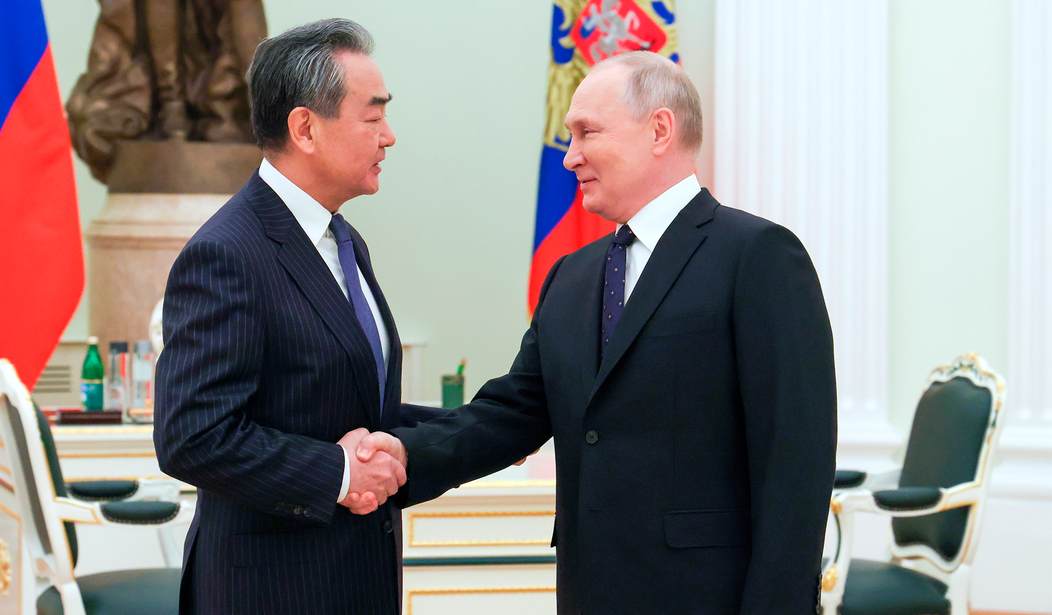Top News
Despite Sanctions, Russia Announces Record-Breaking Budget

For nearly two years, the United States and many of our allies have been imposing harsh sanctions on Russia following Vladimir Putin’s invasion of Ukraine. It was an almost unprecedented example of “economic warfare” being waged at an international scale, hailed as a new alternative to traditional warfare that might result in a nuclear exchange. So how has that been working out thus far? It hasn’t budged the Kremlin one inch toward relenting in its attacks on Ukraine and life inside of Russia appears to be going on pretty much as normal aside from an excessive number of military funerals and an uptick in the arrests of people who speak out against the war. In fact, Russia’s economy is still in such good shape that they just approved their largest-ever budget with record spending going toward the military.
Russia’s State Duma took a step forward Wednesday towards approving its biggest-ever federal budget which will increase spending by around 25% in 2024, with record amounts going on defense.
Defense spending is expected to overtake social spending next year for the first time in modern Russian history, at a time when the Kremlin is keen to shore up support for President Vladimir Putin as Russia prepares for a presidential election in March.
Record low unemployment, higher wages and targeted social spending should help the Kremlin ride out the domestic impact of pivoting the economy to a war footing, but could pose a problem in the long term, analysts say.
The war in Ukraine has been teaching the world, particularly the United States some harsh lessons about reality. The first and most obvious at this point is that Ukraine cannot fully defeat or even expel Russia no matter how much money and weapons we give them. Almost everyone outside of the White House agrees that the Ukrainian counteroffensive has failed and the “gains” that Zelensky’s supporters love to talk about are frequently being measured in yards rather than miles and their troops are dying in droves.
The other disappointing lesson we have been learning is that economic warfare has similarly been a failure. Sanctions are tools that the United States has long relied on to impose fiscal pressure on other nations in an effort to modify their behavior. They can be and have been effective in the past, particularly when they are imposed on smaller, more isolated nations. That was the case with Iran during the Trump administration. But in other cases, particularly with North Korea, sanctions have failed to result in any measurable changes in policy.
Sanctions against a powerful major adversary have proven even more toothless. We were doing a lot of business with Russia prior to the invasion of Ukraine, but when we shut much of that down along with most of our European allies, Russia proved to have the ability to pivot and reinvent its business model. When the West stopped selling them oil, Russia simply stepped up its purchases from China, Iran, and other Arab allies. When Western businesses pulled out of Russia, the door was opened for local entrepreneurs to start up replacement operations, frequently using the same buildings and equipment that the previous businesses had abandoned. It’s arguable at this point that the Russian sanctions have done more economic damage to the West than they have to Moscow.
The economic warfare model might have worked if it were truly global in nature, but it obviously hasn’t been. The United States grossly overestimated its global reach and influence. It’s not just China and North Korea that are helping Russia (or at least remaining neutral). India has resisted incurring the wrath of the Kremlin and continues to do business there. Iran is also deeply involved. Much of Africa has refused to take sides and South Africa has recently moved to fully embrace trade with Russia. Even in South America, most nations are hesitant to poke the bear, particularly when the bear has almost 6,000 nukes.
The fact is, we never had the global influence that would be required to bend the will of the entire world against another superpower. If we did, Russia would have withered away on its own long before now. And our influence has shrunken considerably further under Joe Biden’s leadership. The world doesn’t fear us the way that it once did and you can see evidence of that all around the globe. In the United States, we need to be more modest about our expectations and focus on taking care of our own people’s needs and our national security rather than seeking to impose our will on the rest of the world.
Read the full article here

-
Uncategorized6 days ago
The Surge of Crypto Slots: A New Period in Online Pc Gaming
-
Uncategorized6 days ago
Kəşf Etmək Binance Coin Kazino Saytları Dünyasını
-
Uncategorized6 days ago
The Increase of Dogecoin Casino Sites: An Extensive Introduction
-
Uncategorized6 days ago
High Roller Online Casinos: Inside the Globe of Elite Betting
-
Uncategorized2 days ago
The Comprehensive Overview to Tutoring Networks







